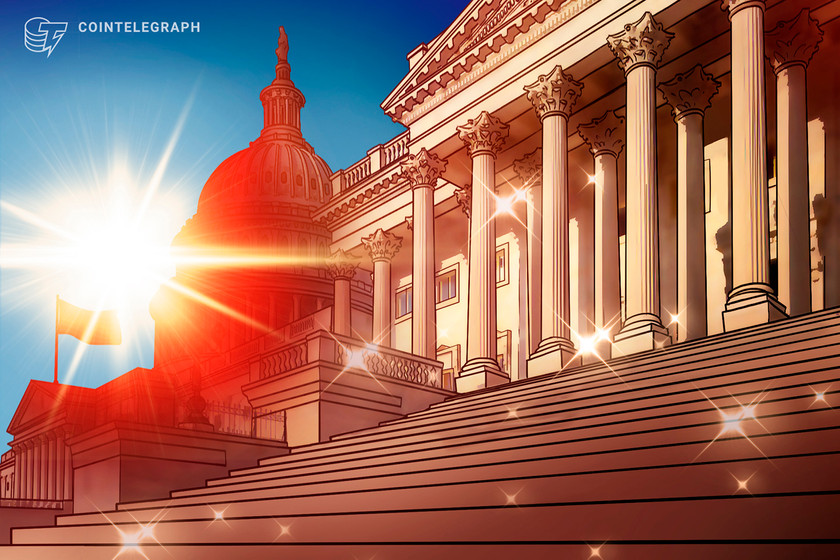
German regulators demand compliance changes from World ID after a biometric data investigation.
Update (Dec. 19 and 15:12 UTC): This article has been updated to clarify that, in May 2024, Worldcoin deleted all data from its old iris code to comply with local regulations.
German data protection authority, the Bavarian State Office for Data Protection Supervision (BayLDA), has issued corrective measures for the digital identity project World, formerly known as Worldcoin, over its handling of biometric data.
The BayLDA announced on Dec. 19 that it had concluded its investigation into World’s compliance with the European Union’s General Data Protection Regulation (GDPR).
 According to Victor Yu, co-founder of Carv, the current digital ecosystem favors data distributors over data creators. While he acknowledges the usefulness of regulatory frameworks like the General Data Protection Regulation (GDPR) and California Consumer Privacy Act (CCPA)in overseeing internet users, Yu believes these frameworks fall short because they do not translate into full user […]
According to Victor Yu, co-founder of Carv, the current digital ecosystem favors data distributors over data creators. While he acknowledges the usefulness of regulatory frameworks like the General Data Protection Regulation (GDPR) and California Consumer Privacy Act (CCPA)in overseeing internet users, Yu believes these frameworks fall short because they do not translate into full user […]

Austrian data rights group Noyb filed a privacy complaint against OpenAI, accusing its ChatGPT of providing false information and potentially breaching EU privacy regulations.
The prominent artificial intelligence (AI) developer OpenAI has been placed at the center of a new privacy complaint launched by a data rights protection advocacy group in Austria.
On April 29, Noyb opened the complaint alleging that OpenAI has not fixed false information provided by its generative AI chatbot ChatGPT. The group said these actions, or lack thereof, could breach privacy rules in the European Union.
According to the group, the complainant of the case, an unnamed public figure, asked OpenAI’s chatbot for information about himself and was consistently provided with incorrect information.
 Worldcoin, the biometric iris scanning project, has introduced a complaint against the actions of the AEPD, the personal data protection agency in Spain. Tools For Humanity, the company behind Worldcoin, argues that the agency circumvented the General Data Protection Regulation (GDPR) established procedures when taking the ban actions against the project. Worldcoin to Fight Operations […]
Worldcoin, the biometric iris scanning project, has introduced a complaint against the actions of the AEPD, the personal data protection agency in Spain. Tools For Humanity, the company behind Worldcoin, argues that the agency circumvented the General Data Protection Regulation (GDPR) established procedures when taking the ban actions against the project. Worldcoin to Fight Operations […] Worldcoin, the biometric identity project, has been banned from operating in Spain for up to three months, according to a press release from the Spanish data agency, the AEPD. The agency will also require Worldcoin to stop using the already collected data from Spanish citizens, utilizing the EU’s General Data Protection Regulation (GDPR) as a […]
Worldcoin, the biometric identity project, has been banned from operating in Spain for up to three months, according to a press release from the Spanish data agency, the AEPD. The agency will also require Worldcoin to stop using the already collected data from Spanish citizens, utilizing the EU’s General Data Protection Regulation (GDPR) as a […]
Lawmakers may be on the brink of scaring blockchain projects into moving offshore or causing them to shut down altogether.
With public trust in large tech companies at an all-time low, Congress is once again considering comprehensive data privacy legislation. But the rise of blockchain technologies and the nascent decentralized web mean that these comprehensive proposals are already behind the times. Without major revisions, these legislative proposals risk strangling decentralizing technologies in the cradle.
The 118th Congress has held many hearings on data privacy, and it is crucial that lawmakers consider how their proposals might impact technological innovation. In order to properly balance conflicts between individuals’ right to control their information and the necessity of innovation, lawmakers should abandon one-size-fits-all proposals in favor of the time-tested, sectoral approach to data privacy.
While there are several comprehensive data privacy bills floating around Capitol Hill, the one that has the most momentum is the American Data Privacy Protection Act (ADPPA). This bill would strictly govern how companies collect, process or transfer user data by requiring companies to minimize data collection and grant consumers the right to opt out of data collection, among other things.
Related: Did regulators intentionally cause a run on banks?
The ADPPA is a well-intentioned piece of legislation designed to give consumers more control over their information. The bill also reflects the desire of many lawmakers to avoid a patchwork approach to data privacy by creating a national standard of comprehensive privacy protections.
Unfortunately, when it comes to data privacy rules, the past is prologue. Similar approaches to comprehensive data privacy protections have failed to account for nascent technologies, such as blockchain networks, significantly chilling innovation. For evidence of this, look no further than the European Union’s General Data Privacy Regulation (GDPR).
In addition to inhibiting investment and innovation in traditional tech industries, the GDPR is wholly incompatible with decentralizing technologies like blockchains that lack centralized controllers. In fact, the European Parliamentary Research Service admitted as much in a 2019 report. One of the biggest incongruities between the GDPR and blockchain technologies is the question of what entity is being regulated.

Among more traditional internet companies, it is relatively easy to determine who is collecting, processing and transferring data because they are usually centralized. In a decentralized system like a blockchain network, that question becomes significantly more difficult to answer. When thousands of computers are operating open-source code to verify public transactions, who or what is collecting, processing or transferring covered data? Like the GDPR, the ADPAA is silent on this question as well as numerous others relating to how decentralized networks would have to comply.
The European Union’s response to such incongruity in the GDPR is that innovators should build technologies that comply with the law in spite of the fact that doing so is practically impossible. This burdensome requirement has helped lead to a dearth of technological innovation across Europe. The same is likely to happen here if the United States were to implement the ADPPA as written. Many blockchain projects would move offshore or shut down altogether, taking with them enormous potential for economic growth and innovation.
Fortunately, there is an alternative approach that the U.S. could take that could simultaneously limit the problems of a patchwork approach to data privacy law and allow flexibility for innovative technologies. The answer is to break up comprehensive data privacy proposals into nuanced, sector-specific bills. For example, Congress could pass legislation laying out data privacy rules targeted specifically at e-commerce sites and social media services or even update existing laws like the Children’s Online Privacy Protection Act that governs data collection for minors rather than make omnibus, one-size-fits-all rules.
Related: Lawmakers should check the SEC’s wartime consigliere with legislation
Historically, this is the approach that the U.S. has taken to data privacy in other industries. From laws about financial information to healthcare information, policymakers have traditionally created data privacy rules that are narrowly tailored to specific contexts. The Health Insurance Portability and Accountability Act, for example, governs the flow of healthcare information, while the Gramm-Leach-Bliley Act was designed to protect consumers’ financial privacy. These rules almost always preempt state-level rules and are generally more politically palatable than sweeping one-size-fits-all legislation.
Through a sectoral approach to data privacy legislation, lawmakers can create rules tailored to different contexts that harmonize with blockchain technologies. If lawmakers believe that a sectoral approach does not go far enough toward protecting consumers’ information, then they should at least draft comprehensive data privacy legislation in a way that won’t harm innovation and force innovators offshore. After all, there’s a reason most of the best and brightest technologists choose to live, work and build in the United States. It would be foolish to push them and their innovations away with short-sighted legislation.
The views, thoughts and opinions expressed here are the authors’ alone and do not necessarily reflect or represent the views and opinions of Cointelegraph.